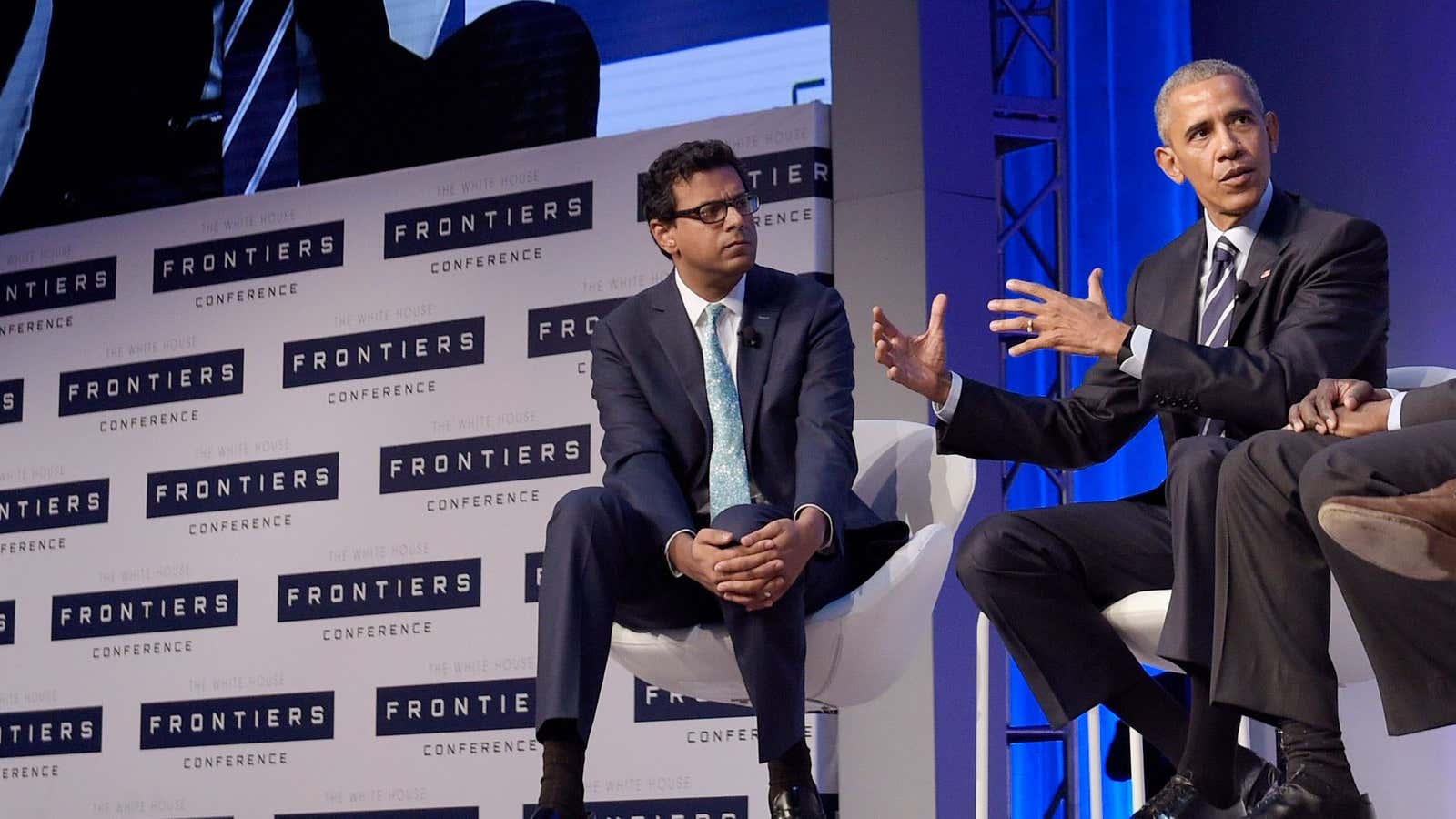Executives from Amazon, JPMorgan Chase, and Berkshire Hathaway have named doctor Atul Gawande the CEO of their joint healthcare company, a startup announced in January that’s intended to serve as an alternative medical system for the companies’ employees.
Gawande has a long history of criticizing healthcare in the US. In addition to being a surgeon at Brigham and Women’s Hospital in Boston and a professor at Harvard Medical School, he has found wide acclaim as an author and as a staff writer for The New Yorker. His 2009 piece “The Cost Conundrum” (paywall) described in detail how one town in Texas was spending thousands of dollars on care for its senior citizens, yet failing to provide better care. His books The Checklist Manifesto and Complications both boil healthcare improvements down to a science.
In the US, employers provide access to private healthcare coverage for more than 150 million people. The setup arguably has some advantages over public systems, but it’s also exclusive and incredibly expensive, accounting for 18% of US GDP in 2016, without evidence of measurably better health outcomes than less costly systems. This new venture aims to streamline the medical process by putting doctors, insurers, and patients all on the same page, and taking more advantage of cost-effective services like telemedicine.
Some in the medical industry are skeptical that the Amazon-JPMorgan-Berkshire venture will be able to solve America’s healthcare problems or lead to more widespread reform. But Gawande struck a confident note in the announcement of his hiring, saying, “I have devoted my public health career to building scalable solutions for better health-care delivery that are saving lives, reducing suffering, and eliminating wasteful spending both in the US and across the world.”
Gawande will take on his new role beginning July 9. According to STAT, he has told friends and family that he is not giving up his jobs as a surgeon, professor, or writer. Presumably one or more of these roles comes with the offer of health insurance. For many Americans patching together their livelihood by juggling multiple jobs, this often isn’t the case.
